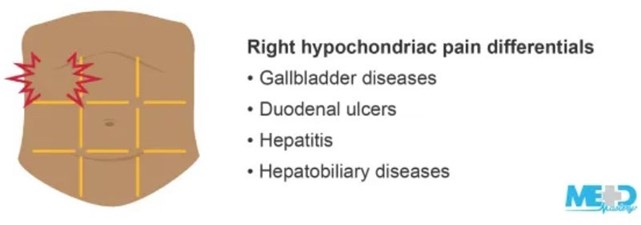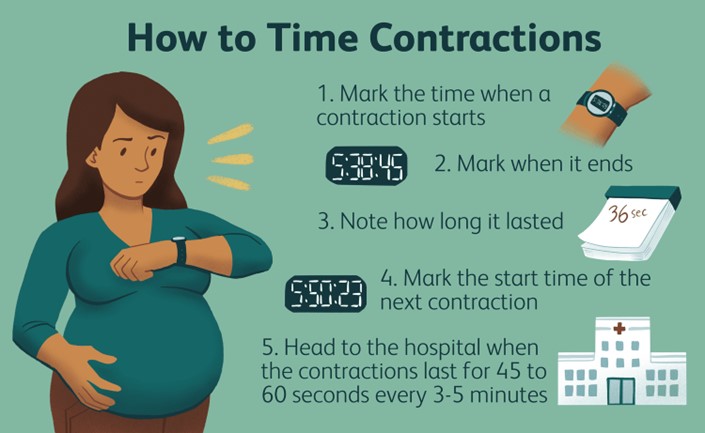A nurse is caring for a group of clients on an intrapartum unit. Which of the following findings should be reported to the RN immediately?
A client who is at 32 weeks of gestation and is experiencing irregular, frequent contractions is tearful
A client who has preeclampsia has 2+ patellar reflexes and 2+ proteinuria
A client who is at 28 weeks of gestation and receiving terbutaline reports fine tremors
A client who has preeclampsia and reports epigastric pain and unresolved headache
The Correct Answer is D
Choice D reason: A client who has preeclampsia and reports epigastric pain and unresolved headache should be reported to the RN immediately, as these are signs of severe preeclampsia and impending eclampsia, which can lead to seizures, coma, and death. The client may need anticonvulsant medication, magnesium sulfate infusion, and delivery of the fetus.
Choice A reason: A client who is at 32 weeks of gestation and is experiencing irregular, frequent contractions is tearful may have preterm labor, which should be monitored and treated accordingly. However, this is not as urgent as choice D, as the contractions may subside with hydration, rest, or tocolytic medication.
Choice B reason: A client who has preeclampsia has 2+ patellar reflexes and 2+ proteinuria may have mild preeclampsia, which should be managed with antihypertensive medication, bed rest, and fetal monitoring. However, this is not as urgent as choice D, as the reflexes and proteinuria are not indicative of severe preeclampsia or eclampsia.
Choice C reason: A client who is at 28 weeks of gestation and receiving terbutaline reports fine tremors may have a common side effect of terbutaline, which is a beta-adrenergic agonist that relaxes uterine smooth muscle and inhibits contractions. However, this is not as urgent as choice D, as the tremors are usually transient and benign. The nurse should monitor the client's vital signs, blood glucose, and fetal heart rate.

Nursing Test Bank
Naxlex Comprehensive Predictor Exams
Related Questions
Correct Answer is C
Explanation
Choice A reason: Three fingerbreadths above the umbilicus is incorrect, as this position indicates a higher than expected fundal height for a client who is 12 hr postpartum. The fundus is normally at the level of the umbilicus immediately after birth and then descends about one fingerbreadth per day. A high fundal height can indicate uterine atony, retained placental fragments, or bladder distension.
Choice B reason: One fingerbreadth above the symphysis pubis is incorrect, as this position indicates a lower than expected fundal height for a client who is 12 hr postpartum. The fundus is normally at the level of the umbilicus immediately after birth and then descends about one finger-breadth per day. A low fundal height can indicate uterine inversion, which is a rare but life-threatening complication.
Choice C reason: At the level of the umbilicus is correct, as this position indicates a normal and expected fundal height for a client who is 12 hr postpartum. The fundus is normally at the level of the umbilicus immediately after birth and then descends about one finger-breadth per day. A midline and firm fundus indicates adequate uterine contraction and involution.
Choice D reason: To the right of the umbilicus is incorrect, as this position indicates a deviated fundus for a client who is 12 hr postpartum. The fundus should be midline and not displaced to either side. A deviated fundus can indicate bladder distension, which can interfere with uterine contraction and involution. The nurse should assist the client to empty their bladder and reassess the fundal position.

Correct Answer is D
Explanation
Choice A reason:
Bloody show from the vagina is incorrect, as this finding is normal and expected in the second stage of labor. Bloody show refers to the passage of mucus and blood from the cervix, which indicates cervical dilation and effacement.
Choice B reason:
Early decelerations in the FHR is incorrect, as this finding is normal and benign in the second stage of labor. Early decelerations are symmetrical decreases in the FHR that mirror the contractions, which indicate fetal head compression and vagal stimulation. The nurse should continue to monitor the FHR and document the findings.
Choice C reason:
Pelvic pressure with contractions is incorrect, as this finding is normal and expected in the second stage of labor. Pelvic pressure indicates that the fetus is descending into the birth canal and that the client is ready to push.
Choice D reason:
Uterine contraction lasting 2 min is correct, as this finding is abnormal and potentially dangerous in any stage of labor. Uterine contraction lasting 2 min can indicate uterine tetany or hyperstimulation, which can cause fetal distress, placental abruption, uterine rupture, or maternal hemorrhage. The nurse should report this finding to the provider immediately and prepare to intervene as ordered.

Whether you are a student looking to ace your exams or a practicing nurse seeking to enhance your expertise , our nursing education contents will empower you with the confidence and competence to make a difference in the lives of patients and become a respected leader in the healthcare field.
Visit Naxlex, invest in your future and unlock endless possibilities with our unparalleled nursing education contents today
Report Wrong Answer on the Current Question
Do you disagree with the answer? If yes, what is your expected answer? Explain.
Kindly be descriptive with the issue you are facing.
